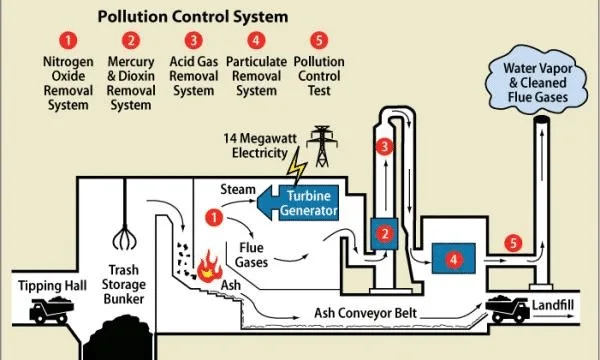Syllabus: GS3/ S&T
In News
- The plan to incinerate 337 tonnes of chemical waste from the Bhopal gas tragedy in Pithampur has generated mixed reactions on the process of incineration.
About Incineration
- Incineration is a waste treatment process involving the controlled combustion of materials at high temperatures to reduce their volume, neutralize hazardous components, and recover energy.

Image Courtesy: Researchgate
Arguments in Favor of Incineration
- Safe disposal: Incineration at high temperatures can effectively destroy most hazardous chemicals, reducing the risk of contamination.
- Energy recovery: The heat generated during incineration can be used to produce electricity or steam, providing a source of energy.
- Space-saving: Incineration significantly reduces the volume of waste, reducing the need for landfills.
Arguments Against Incineration
- Harmful emissions: Incineration can release harmful pollutants such as dioxins, furans, and heavy metals if not properly controlled.
- Health risks: Exposure to these pollutants can increase the risk of respiratory problems, cancer, and other health issues.
- Air and water pollution: Residual ash and flue gases from incineration can contaminate the environment.
- High costs: Building and operating an incinerator is expensive, and the process requires significant maintenance.
Alternative Solutions to Incineration
- Secure landfill disposal: This option would involve storing the waste in a specially designed landfill with multiple layers of protection to prevent leakage.
- Vitrification: This process involves melting the waste at high temperatures to form a solid glass block that is stable and non-leachable.
- Plasma arc technology: This technology uses a high-temperature plasma to decompose the waste into its basic elements, which can then be safely disposed of.
Source: TH
Previous article
Cabinet Approves Modifications in Crop Insurance Scheme
Next article
India Declared 2025 as the “Year of Defense Reforms”